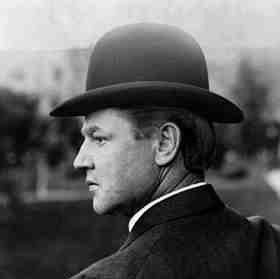- 10 Dec 2005 13:15
#769911
I am sure everyone knows the old argument. You can't get into the same river twice, as the river would have changed, and thus become a different river. Some like to take the argument further and claim that nothing is ever the same as time flows. I myself writing this is a different person to one writing this. I want to say that I think all the arguments for this are fallacies. The confusion comes form the absence of an accurate definition of the word 'river' or 'person' or anything else. Does one define a river as a completely stationary body of water molecules, or as a dynamic body of molecules, which is contained by riverbanks and the riverbed? I am sure that everyone would agree on a river being a dynamic system, as well as any other object. So, the arguments are false and groundless.
"Businessmen favor free enterprise in general but are opposed to it when it comes to themselves." - Milton Friedman




















 - By JohnRawls
- By JohnRawls - By Pants-of-dog
- By Pants-of-dog